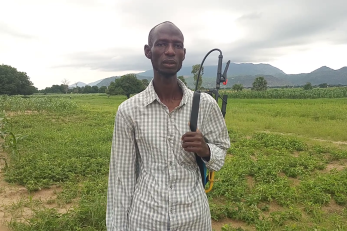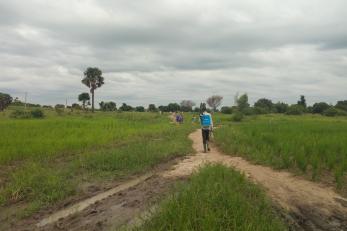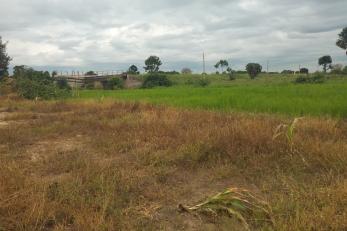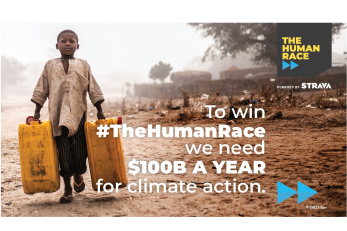Climate change: Rural communities in Borno face worsening food insecurity

With the effect of global warming and climate change, the planet’s weather conditions are no longer predictable. In the past, the predictability of weather and climate as to when the rains will come or stop was one major factor in determining when the planting season and the harvest time will occur in several farming communities.
Like many farmers in developing nations, Idrissa Usman is struggling to understand the current shortage in rainfall that has led to an unpredictable farming season.
In his rural village of Hausari in Gwoza local government area of Borno State in Northeastern Nigeria, the rainy season is expected to begin in late March or early April. However, this year, the rains came in June and the water volume was lower than usual. This has affected the farming schedules of farmers, which in turn has the tendency of affecting crop yields later in the year.

Idrissa and other farmers not only have to battle with the late rains, but they also must battle with lower water levels, as the river that serves as the main source of irrigation in their community is drying up despite it being the rainy season.
This change in climate is posing a huge threat to food security in the region. The large-scale shift in weather patterns shortens the planting window with excessive rainfall variability. The change in precipitation threatens largely rain-fed agriculture dependent communities around the rural communities like Idrissa’s. With about 70 percent of Nigerian families dependent on agriculture, more than half of this population are currently at risk of poor food supply from llow farming yields as a result of climate change.

Climate change: A call for global action
In a statement released by humanitarian partners, “The climate emergency is wreaking havoc across the world at a scale that people and humanitarian organizations on the front lines cannot manage. Droughts, heatwaves, raging wildfires and horrific floods are shattering the lives of millions of people. News media is filled with stories of people losing their homes, their livelihoods and their lives. And this is just a glimpse of what lies ahead if we fail to act on climate change. Time is running out.”
Communities worse hit by the climate crisis in Nigeria are those in the northeast, with regressive weather conditions causing droughts and low farming yields fueling existing tensions between farming and herder communities. Conflict over natural resources are just a part of the security issues in Nigeria, the country has been battling an age-long crisis from insurgency attacks from armed opposition groups (AOG) that have developed into a humanitarian crisis in the northeast, northwest and north central regions.
The insecurity in these regions have gravely affected farming, pastoral and market livelihoods, the main source of income of many families in this region. With AOG taking over territorial land boundaries and government military forces fencing in affected communities as garrison towns, many families can no longer visit their farms or even leave their communities to neighboring towns for employment. Crisis communities do not only have to suffer the cost of insecurity, but also the impact of climate emergency.
World Humanitarian Day 2021: #TheHumanRace
On August 19, 2003, a bomb attack on the Canal Hotel in Baghdad, Iraq, killed 22 humanitarian aid workers, including Special Representative of the UN Secretary-General for Iraq, Sergio Vieira de Mello. Five years later, the General Assembly passed a resolution designating August 19 as World Humanitarian Day.
Every year, the day focuses on a theme that brings together humanitarian partners all over the world to advocate for the survival, well-being and dignity of people affected by crises, calling for the safety and security of aid workers.
World Humanitarian Day 2021 highlights the immediate consequences of the climate emergency for the world’s most vulnerable people, ensuring that their voices are heard, and their needs top the agenda at the UN Climate Change Conference (COP26) in November.
The theme for this year is #TheHumanRace, a global campaign calling urgent attention to the climate emergency and a call to global leaders to fulfill their commitments to provide $100 billion annually for climate action for the world’s most vulnerable people. People all over the world have been invited to participate in a 100minutes physical activity by walking, running, riding, swimming or performing any other physical activity from August 16-31, to support the call for action.
In the race against the climate crisis, we cannot leave anyone behind! Visit https://www.worldhumanitarianday.org/ to get involved.
